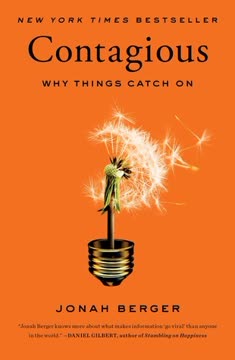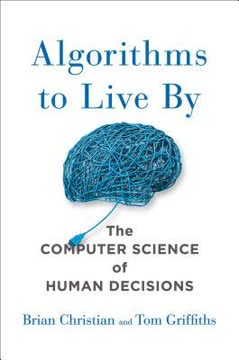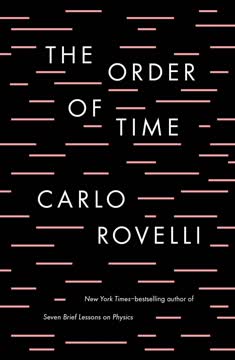つの重要なポイント
1. 人生における変化と不確実性を受け入れる
Tempora mutantur, nos et mutamur in illis: 「時代は変わり、我々もその中で変わる。」
変化は避けられない。 歴史を通じて、技術の進歩はしばしば予測不可能な方法で社会を変革してきた。重要なのは、これらの変化に適応し進化することであり、抵抗することではない。
- 変革をもたらした技術の例:
- テレビ
- ペニシリン
- インターネット
- 人工知能
未来に備える。 世界がどのように変わるかを正確に予測することはできないが、価値のあるスキルを育むことはできる。未来の職業市場は以下の3つのCに焦点を当てる可能性が高い:
- 3つのC:
- クリエイティブ
- ケア
- カストディアン
変化を受け入れ、適応力のあるスキルを開発することで、不確実な未来においても成功することができる。
2. 好奇心を育て、従来の知恵に挑戦する
好奇心は猫を殺さない。
すべてを疑う。 コペルニクスやガリレオのように、その時代の受け入れられた知恵に挑戦することが重要である。これは革新と進歩につながる。
失敗を学びとして受け入れる。 起業家や科学者は、失敗が成功へのステップであることを理解している。ジェームズ・ダイソンは、掃除機を完成させるまでに5,127のプロトタイプを作成した。
- 好奇心を育む方法:
- オープンマインドで旅行する
- 「なぜ?」と「どうやって?」を問う
- 多様な分野を探求する
- 自分の信念に挑戦する
創造性はしばしば現状を疑い、間違いを犯すことをいとわないことから生まれる。
3. 学問を超えた多重知能を発展させる
あなたは人材ではない。
知能は多面的である。 学問的な成功は知能の一形態に過ぎない。ハワード・ガードナーの多重知能理論は、少なくとも8つのタイプがあることを示唆している。これには音楽的、対人関係的、空間的知能が含まれる。
実践的なスキルを重視する。 正式な教育は重要であるが、多くの重要な生活スキルは経験を通じて学ばれ、教室では教えられない。
- 重要な生活スキル:
- 人間関係の構築
- 財務管理
- 変化への適応
- 問題解決
- 感情知能
多面的なスキルと知能を発展させることで、人生を成功に導くことができる。
4. 人間関係とチームワークを優先する
「私」より「私たち」が常に勝つ。
人間関係に投資する。 家族、友人、同僚との強い結びつきは、個人的および職業的な成功に不可欠である。これらの関係はサポート、学習機会、帰属意識を提供する。
効果的なチームワークを育む。 ボートのエイトモデルは理想的なチームダイナミクスを示している:
- ボートのエイトの役割:
- キャプテン(公式リーダー)
- ストローク(ペースを設定)
- コックス(舵を取り、指示を出す)
- コーチ(外部からの視点を提供)
人間関係を重視し、効果的なチームワークを理解することで、一人では達成できないことを達成することができる。
5. 仕事における目的とバランスを見つける
自分が最も得意なことで最善を尽くす。
自分のゴールデンシードを見つける。 誰もが独自の才能や適性を持っている。この「ゴールデンシード」を見つけ、育むことで、充実したキャリアと人生を送ることができる。
ワークライフインテグレーションを目指す。 ワークライフバランスを追求するのではなく、人生のさまざまな側面が互いに補完し合うような統合を目指す。
- バランスの取れた仕事生活の要素:
- 有給の仕事
- ボランティア活動
- 家事
- 学習
仕事は単にお金を稼ぐためのものではなく、目的を提供し、独自の才能を表現する機会であるべきだ。
6. お金と人生における「十分」哲学を実践する
十分はごちそうと同じくらい良い。
自分の「十分」を定義する。 常にもっとを追求することは、不満や燃え尽き症候群につながる可能性がある。幸福と充実のために本当に必要なものを見極める。
賢く投資し、慎重に使う。 投資(長期的な価値を提供するもの)と支出(短期的な消費)を区別する。
- 投資の例:
- 教育
- 職業のための質の高い道具
- 視野を広げる経験
「十分」の概念を受け入れることで、満足感を見つけ、人生で本当に重要なことに集中することができる。
7. 意義ある人生の第四四半期に備える
後年が最も楽しい時期になるとは思わなかったが、そうなった。
長寿に備える。 平均寿命の延びに伴い、人生の「第四四半期」(75歳から100歳)は充実した新しい機会の時期となり得る。
活動的で関与し続ける。 退職はすべての仕事をやめることを意味しない。むしろ、情熱を追求し、新しい方法で社会に貢献する機会である。
- 第四四半期の準備:
- 財務計画
- 健康維持
- 生涯学習
- サポートネットワークの構築
早期に準備し、前向きな見通しを持つことで、後年を人生の最良の時期にすることができる。
8. 自分の独自性と可能性を認識する
誰もが他の誰とも違う、唯一無二の存在である。
自分の個性を受け入れる。 あなたの経験、才能、視点の独自の組み合わせは、あなたをかけがえのない存在にする。この独自性を認識し、祝う。
自己発見を続ける。 自己認識は生涯にわたる旅である。定期的に自分の価値観、目標、経験を振り返り、真の自分をよりよく理解し表現する。
- 自分の独自性を探求する方法:
- 新しい経験を試す
- 他人からのフィードバックを求める
- 自分の情熱と強みを振り返る
- コンフォートゾーンに挑戦する
自分の独自性を認識し、継続的に自分の可能性を探求することで、より本物で充実した人生を送ることができる。
最終更新日:
FAQ
What is "21 Letters on Life and Its Challenges" by Charles B. Handy about?
- Personal Letters of Wisdom: The book is a collection of 21 letters written by Charles Handy to his grandchildren, offering reflections and advice on navigating life’s complexities.
- Themes of Change and Continuity: It explores how life changes over time, what remains constant, and how to adapt to both.
- Philosophical and Practical Guidance: Handy blends philosophical insights with practical advice, drawing from his own experiences in work, family, and society.
- A Legacy of Learning: The letters serve as a legacy, sharing the lessons Handy wishes he had known when he was young, and encouraging readers to think deeply about their own lives.
Why should I read "21 Letters on Life and Its Challenges" by Charles B. Handy?
- Timeless Life Lessons: The book distills decades of wisdom into accessible, relatable letters that address universal challenges and questions.
- Intergenerational Perspective: Written for his grandchildren, Handy’s advice is relevant for readers of all ages, making it a valuable resource for anyone at a crossroads.
- Blend of Philosophy and Real Life: Handy connects big philosophical ideas with everyday decisions, making abstract concepts practical.
- Encourages Self-Reflection: The book prompts readers to reflect on their own values, choices, and the meaning of a fulfilling life.
What are the key takeaways from "21 Letters on Life and Its Challenges" by Charles B. Handy?
- Embrace Change: Life is always changing; adaptability and openness to new experiences are crucial.
- Value of Work and Identity: Who you are matters more than what you do; work should be meaningful but not all-consuming.
- Importance of Relationships: Companionship, friendship, and family are central to a good life.
- Proper Selfishness and Virtue: Balancing self-care with care for others leads to fulfillment; virtues like courage, kindness, and honesty are essential.
- Limits of Measurement: Not everything that counts can be counted; intangible qualities like love, beauty, and kindness matter most.
How does Charles B. Handy define a meaningful life in "21 Letters on Life and Its Challenges"?
- Doing Your Best with Your Best: Handy, drawing on Aristotle, suggests that fulfillment comes from doing the best you can with what you are best at, while being a good person.
- Self-Discovery and Growth: Life is a journey of discovering your unique talents (“golden seed”) and nurturing them.
- Virtue and Contribution: A meaningful life involves living virtuously and contributing to the well-being of others.
- Balance and Reflection: Regular reflection, rest, and balance between work, play, and relationships are key to a purposeful life.
What is the "golden seed" concept in "21 Letters on Life and Its Challenges" by Charles B. Handy?
- Unique Potential: The "golden seed" refers to each person’s unique talent, skill, or aptitude that, when nurtured, leads to self-fulfillment.
- Discovery and Growth: It’s important to discover this seed early, often with the help of parents, teachers, or mentors, and give it room to grow.
- Purpose and Satisfaction: Using your golden seed to do meaningful work brings satisfaction and a sense of purpose.
- Role of Others: Sometimes others can see your golden seed more clearly than you can, highlighting the importance of supportive relationships.
How does "21 Letters on Life and Its Challenges" by Charles B. Handy address the role of work in life?
- Work as Central, but Not All: Work is a central part of life, providing meaning and structure, but should not define your entire identity.
- Changing Nature of Work: Handy discusses how work has shifted from stable, lifelong careers to more flexible, portfolio-based lives.
- Portfolio Life: He advocates for a “portfolio life,” combining different types of work (paid, unpaid, passion projects) for fulfillment and security.
- Work-Life Balance: The book emphasizes the importance of balancing work with rest, reflection, and relationships.
What advice does Charles B. Handy give about dealing with change and uncertainty in "21 Letters on Life and Its Challenges"?
- Change is Inevitable: Handy stresses that change is a constant in life, and resisting it leads to stagnation.
- Adaptability and Curiosity: Embracing curiosity, being willing to learn, and staying open to new experiences are key to thriving amid uncertainty.
- S-Curve Model: He introduces the idea of life’s “S curves,” encouraging readers to start new ventures before the old ones decline.
- Learning from Mistakes: Mistakes and failures are valuable learning opportunities; don’t be afraid to experiment and adapt.
How does "21 Letters on Life and Its Challenges" by Charles B. Handy explore the importance of relationships and community?
- We Over I: Handy argues that companionship, friendship, and teamwork are more rewarding than solitary achievement.
- Invest in Relationships: Building and maintaining close relationships requires effort, kindness, and honesty.
- Community and Society: He discusses the importance of being an active citizen, contributing to society, and not relying solely on “they” (authorities) to solve problems.
- Marriage and Partnerships: Handy shares personal stories about the evolving “contracts” in marriage and the need for ongoing negotiation and fairness.
What does Charles B. Handy mean by "proper selfishness" in "21 Letters on Life and Its Challenges"?
- Self-Care as Foundation: Proper selfishness means looking after your own needs and well-being so you can be of use to others.
- Balance with Altruism: It’s not about being self-centered; true fulfillment comes from giving to others after ensuring your own stability.
- Ethical Living: Handy ties this to philosophical ideas like Kant’s categorical imperative and the Golden Rule, advocating for ethical self-interest.
- Avoiding Burnout: By practicing proper selfishness, you avoid burnout and are better equipped to contribute positively to the world.
How does "21 Letters on Life and Its Challenges" by Charles B. Handy critique the measurement of success and the use of numbers?
- Limits of Quantification: Handy warns against the “McNamara Fallacy”—believing only what can be measured is important.
- Intangibles Matter Most: Qualities like love, kindness, beauty, and happiness can’t be quantified but are central to a good life.
- Beware of Metrics: Over-reliance on numbers (money, test scores, bonuses) can blind us to what truly matters.
- Personal Examples: Handy shares stories where chasing numbers led to poor decisions, emphasizing the need for balance.
What are the most important virtues and values according to "21 Letters on Life and Its Challenges" by Charles B. Handy?
- Aristotelian Virtues: Handy highlights Aristotle’s list of virtues, including courage, temperance, generosity, pride, honor, good temper, friendliness, truthfulness, wit, friendship, and justice.
- Golden Mean: He emphasizes the importance of balance—virtues taken to extremes become vices.
- Emotional Intelligence: Modern concepts like emotional intelligence are seen as extensions of these classical virtues.
- Learning by Example: Virtues are best learned by observing and imitating respected elders, parents, and mentors.
What are the best quotes from "21 Letters on Life and Its Challenges" by Charles B. Handy and what do they mean?
- “Doing the best you can with what you are best at.” – This encapsulates Handy’s philosophy of fulfillment through self-knowledge and virtue.
- “What you can’t count matters more than what you can.” – A reminder that the most important aspects of life are often intangible and immeasurable.
- “Life is a marathon, not a horse race.” – Success is about personal growth and endurance, not beating others in competition.
- “You are not a human resource.” – People should not be treated as mere tools for productivity; individuality and dignity matter.
- “To thine own self be true.” – Quoting Shakespeare, Handy urges readers to live authentically and with integrity.
レビュー
本書『人生とその挑戦に関する21の手紙』は、読者から圧倒的に好評を得ており、その知恵、実用性、そして考えさせられる内容が称賛されている。多くの人々は、この本を心温まるものであり、賢明な祖父からのアドバイスに例えている。孫への手紙という形式が、個人的な触れ合いを感じさせると評価されている。何度も読み返す予定の読者もいる。一部の批評家は独創性に欠けると感じるが、大多数はその貴重な人生の教訓と洞察に対して高く評価している。
Similar Books






















